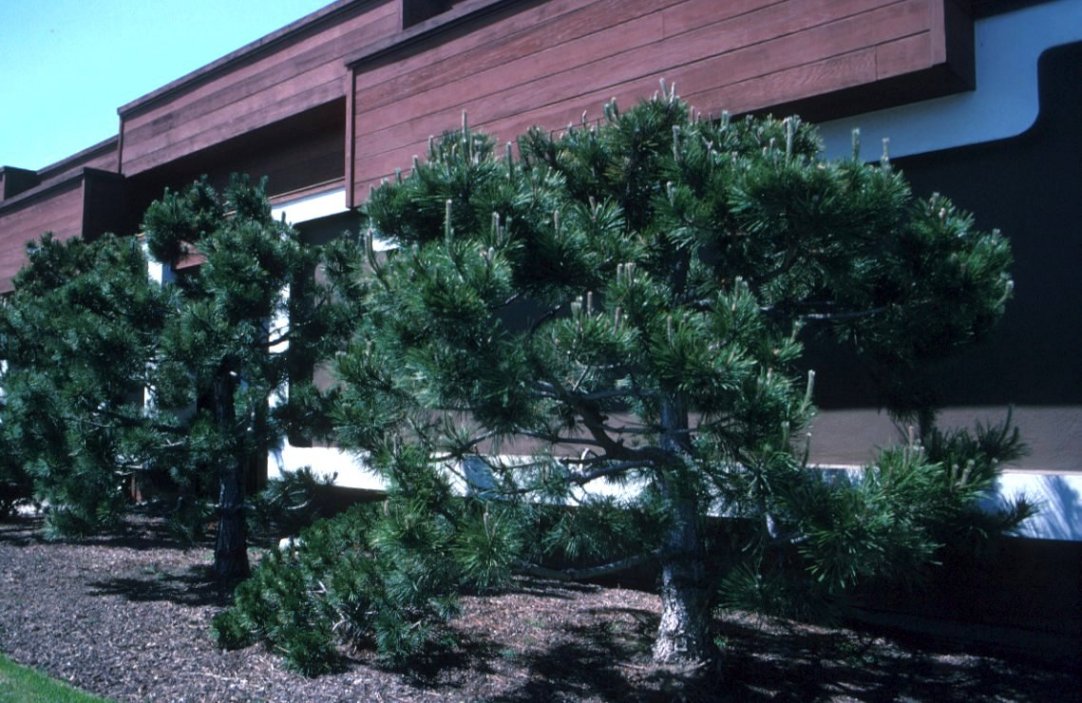
Common name:Japanese Black Pine
Botanical name:Pinus thunbergii
This variety of Pine is both rigid and twisted, with needles of 3"-4". It has an irregular shape, and the short, contorted branches produce a canopy shaped tree. The buds are white, and the cones are egg -shaped and without prickles. Pines are highly combustible plants.
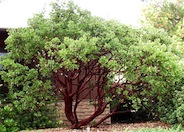
Common name:Manzanita, Dr. Hurd
Botanical name:Arctostaphylos manzanita 'Dr. Hurd'
This is a large shrub with showy bark that reaches 8'-20' tall and wide. It has dark red bark, large pale green leaves and white to pink flower clusters that bloom from February to March. - Cornflower Farms
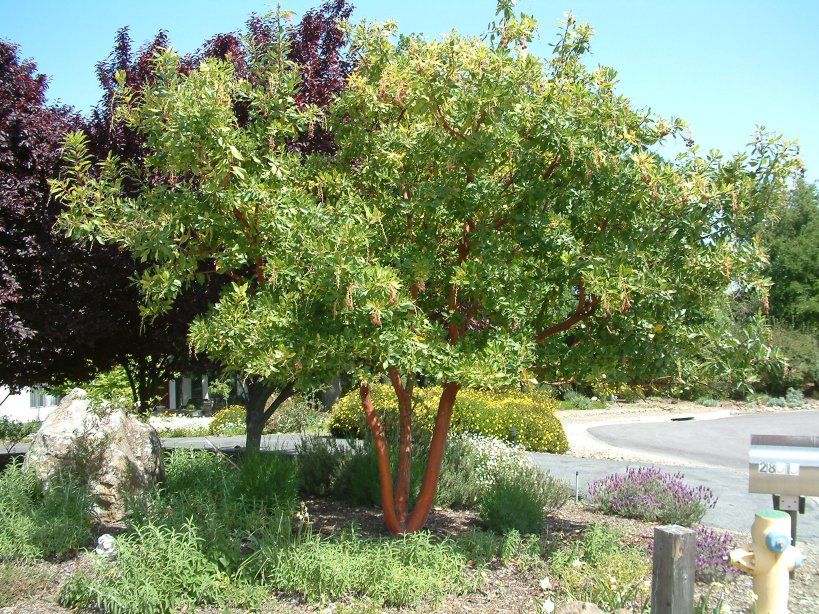
Common name:Strawberry Madrone
Botanical name:Arbutus 'Marina'
The 'Marina' has gorgeous bark, with leaves that are smaller and not as glossy as Pacific Madrone. Its flowers are pink, borne in pendant clusters in the summer. The fruit is large, red and quite ornamental. The plant should be grown in sun to part shade, with little or no summer watering when established. The 'Marina' prefers good drainage. -Monterey Bay Nursery
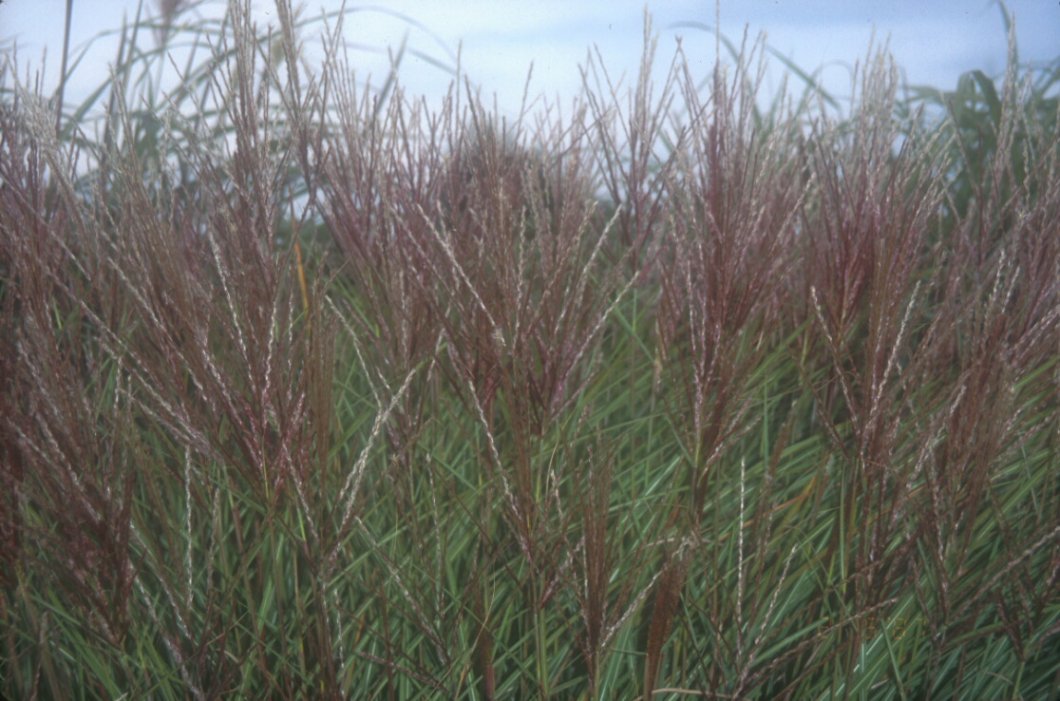
Common name:Eulalia Grass, Silberspinne
Botanical name:Miscanthus sinensis 'Silberspinne'
These deciduous grasses grow from 4'-7' tall, and often turn orange or dark red before going dormant. Tall, showy spikes of feathery, curved seed heads are borne and retained well into the winter or the following spring. It should receive sun to part shade, and average to little summer watering. Tall grasses are highly combustible. -Monterey Bay Nursery
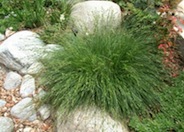
Common name:California Meadow Sedge
Botanical name:Carex pansa
This native Carex can be successfully used as a lawn substitute but requires significant water to obtain good coverage. Once coverage is reached, water can be reduced and maintenance is close to zero. Unmowed, the plant can be used effectively in a variety of conditions and will reach a height of 6" or under and spreads up to 2' by rhizomes.
| Designer: Dave Buchanan | Rock n' Rolls of Grass |
Photographer: GardenSoft |
Soils and Compost:
Physical weed control, including mulching, or hand removal protects the watershed from harmful chemicals.
Water Saving Tip:
Mulching and adding compost to soil can minimize evaporation and help soil absorb and store water.
Integrated Pest Management:
Develop healthy soil for plants that are vigorous and naturally pest-resistant.

